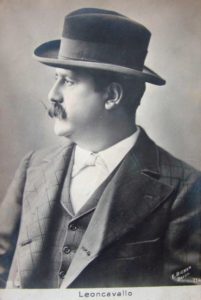Dear Zazie, Here is today’s Lovers’ Chronicle from Mac Tag to his muse. Follow us on twitter @cowboycoleridge. My brother Jett puts on the costume. Do you? Where you are not: Does love dawn or is the sunlight missin’? Rhett
The Lovers’ Chronicle
Dear Muse,
© copyright 2020 mac tag/cowboy coleridge all rights reserved
© copyright 2019 mac tag/cowboy coleridge all rights reserved
a dancin’, drinkin’, laughin’
almost unbelievable time
calm through storms
when the hour was at hand
and day and night were ruled
© copyright 2018 mac tag/cowboy Coleridge all rights reserved
am i ready to find the why
or at least make an attempt
is the answer just waitin’
for me to catch up
why is change so hard
when change is all that is left
if i could git my mind
to go where it should
if i could git my words
to go where they could
c’mon, who am i kiddin’
play and play again
each mistake’s refrain
and i will pick deprivation
instead of daffodils
© copyright 2017 mac tag/cowboy Coleridge all rights reserved
| John Dryden | |
|---|---|
 |
|
Today is the birthday of John Dryden (Aldwincle, Thrapston, Northamptonshire; 19 August [O.S. 9 August] 1631 – 12 May [O.S. 1 May] 1700 London); poet, literary critic, translator, and playwright who was made England’s first Poet Laureate in 1668. He is seen as dominating the literary life of Restoration England to such a point that the period came to be known in literary circles as the Age of Dryden. Walter Scott called him “Glorious John.”
On 1 December 1663 Dryden married Lady Elizabeth Howard (died 1714). The marriage was at St. Swithin’s, London, and the consent of the parents is noted on the license, though Lady Elizabeth was then about twenty-five. She was the object of some scandals, well or ill founded. It was said that Dryden had been bullied into the marriage by her brothers. A small estate in Wiltshire was settled upon them by her father. The lady’s intellect and temper were apparently not good. Dryden apparently was treated as an inferior by those of her social status. Lady Elizabeth Dryden survived her husband, but went insane soon after his death.
Verse
The Secular Masque (1700)
- A very merry, dancing, drinking,
Laughing, quaffing, and unthinkable time.- Lines 38-39.
- The sword within the scabbard keep,
And let mankind agree.- Lines 61-62.
- Calms appear, when storms are past,
Love will have its hour at last.- Lines 72-73.
- Joy rul’d the day, and Love the night.
- Line 82.
- All, all of a piece throughout:
Thy chase had a beast in view;
Thy wars brought nothing about;
Thy lovers were all untrue.
‘Tis well an old age is out,
And time to begin a new.- Lines 86-91.
Cymon and Iphigenia
- Old as I am, for ladies’ love unfit,
The power of beauty I remember yet.- Lines 1-2.
- When beauty fires the blood, how love exalts the mind!
- Line 41.
- He trudged along unknowing what he sought,
And whistled as he went, for want of thought.- Lines 84-85.
- The fool of nature stood with stupid eyes
And gaping mouth, that testified surprise.- Line 107.
- Love taught him shame; and shame, with love at strife,
Soon taught the sweet civilities of life.- Line 133.
- She hugged the offender, and forgave the offense:
Sex to the last.- Lines 367-368.
- And raw in fields the rude militia swarms,
Mouths without hands; maintain’d at vast expense,
In peace a charge, in war a weak defence;
Stout once a month they march, a blustering band,
And ever but in times of need at hand.- Line 400.
- Of seeming arms to make a short essay,
Then hasten to be drunk — the business of the day.- Lines 407-408.

Centre de Musique Mediane pour Vikipedia
It was on this day in 1919 that the Italian composer Ruggero Leoncavallo died. He composed one of my favorite operas, Pagliacci, which includes the famous tenor aria “Vesti la giubba” (Put on the costume). The story revolves around Canio who is married to Nedda but she is in love with Silvio. Leadin’ up to the aria, Canio discovers her infidelity, but must nevertheless prepare for his performance as Pagliaccio the clown because “the show must go on”. He sings:
Act! While in delirium,
I no longer know what I say,
or what I do!
And yet it’s necessary… make an effort!
Bah! Are you not a man?
You are a clown!
Put on your costume, powder your face.
The people pay to be here, and they want to laugh.
And if Harlequin shall steal your Columbina,
laugh, clown, so the crowd will cheer!
Turn your distress and tears into jest,
your pain and sobbing into a funny face – Ah!
Laugh, clown,
at your broken love!
Laugh at the grief that poisons your heart
And he wrote the Italian popular song “Matinatta” (Morning or Morning Serenade).
Morning Serenade
Dawn, dressed in white,
Already opens the door to broad daylight;
Already, with her rosy fingers,
She caresses the multitude of flowers!
All around, creation seems stirred
By a mysterious shiver;
And you do not awaken; and in vain
I stay here, aching to sing.
Put on your white dress too,
And open the door to your minstrel!
Where you are not, sunlight is missing;
Where you are love dawns.
All around, creation seems stirred
By a mysterious shiver;
And you do not awaken; and in vain
I stay here, aching to sing.
Where you are not, sunlight is missing
(Ain’t no sunlight here, MT)
The Songs of the day are “Vesti la giubba” as performed by Luciano Pavarotti – http://www.youtube.com/watch?v=Z0PMq4XGtZ4 we do not own the rights to this song.
And “Matinatta” as performed by Andrea Bocelli – http://www.youtube.com/watch?v=hMe3irDmptA we do not own the rights to this song
| Betty Boop | |
|---|---|
 |
|
Betty Boop is an animated cartoon character created by Max Fleischer, with help from animators including Grim Natwick. She originally appeared in the Talkartoon and Betty Boop film series, which were produced by Fleischer Studios and released by Paramount Pictures. She has also been featured in comic strips and mass merchandising.
A caricature of a Jazz Age flapper, Betty Boop was described in a 1934 court case as: “combin[ing] in appearance the childish with the sophisticated—a large round baby face with big eyes and a nose like a button, framed in a somewhat careful coiffure, with a very small body of which perhaps the leading characteristic is the most self-confident little bust imaginable”. Despite having been toned down in the mid-1930s as a result of the Hays Code to appear more demure, she became one of the best-known and popular cartoon characters in the world.
Betty Boop made her first appearance on August 9, 1930, in the cartoon Dizzy Dishes, the seventh installment in Fleischer’s Talkartoon series. Although Clara Bow is often given as being the model for Boop, she actually began as a caricature of singer Helen Kane, who in turn gained fame by imitating the style of black singer Baby Esther Jones.



Mac Tag
I just miss you, in a quite simple desperate human way. — Letter from Vita Sackville-West to Virginia Woolf


No Comments on "The Lovers’ Chronicle 9 August – mistakes refrain – verse by John Dryden – Death of Leoncavallo – birth of Betty Boop"